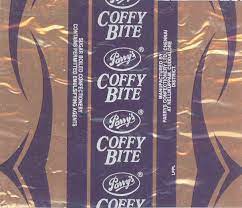Iconic Ads: Fosters – The Australian For Lager

Young men who drank Foster’s were associated with his brashness and swagger and enjoyed making fun of archaic British traditions.
At some point in the early 1980s, Britishers had been racking their brains for many months to come up with an advertising campaign for the introduction of Foster’s Lager in the UK. Unfortunately, because the young English creatives were so saturated with the typical stereotypes of boomerangs and cork hats, everything they came up with was rejected by Foster’s in Australia because it was too traditional for the target market of young people who are interested in drinking in the latest trends.
The advertising firm, Cherry Hedger Seymour, was at a loss for what to do, so in a moment of desperation, they went to the lone Australian employee they had and said, “You want to be a writer? Write a campaign for Foster’s. You’ve got until Monday morning.”
Rowan Dean, who is now well-known as a talk show presenter and political pundit, was the young Australian and the opportunity of a lifetime presented itself to him.
One of the many ideas he frantically scribbled down over the course of that weekend was the one that checked all the right boxes and caught everyone’s fancy. Within a few months, he was filming with Paul Hogan and John Cornell.
It was the job of the Australian to educate the English about the pleasures of drinking a beer that tasted “like an angel crying on your tongue” The slogan was based on the idea that because England didn’t have Fosters, the English didn’t know what “the amber nectar” was. If you’ve never had a Foster’s, then it’s safe to say you’ve never tried beer (at least from the perspective of an Australian). It was Hogan’s responsibility to educate the Brits on this fundamental aspect of existence.
Many factors contributed to the success of the campaign. The narrative struck the appropriate tone at the appropriate juncture. This was the first time that Australians living in Britain had ever talked in such a self-assured and confident manner. All of a sudden, Australians were seen as hip and not embarrassing.
The story was bolstered when Men at Work’s song “Down Under” became a top hit all over the globe at the same time that Australians won the America’s Cup. In other words, the tale had an authentic feel to it.
The innocence and self-deprecation that matched Hogan’s confident attitude were two of the factors that contributed to the character’s overall attractiveness. For example, he assumed that people who were participating in a wine tasting were spitting up the wine because it tasted so poorly. In another advertisement, he clinked his glass in celebration of the end of the dry spell as he looked out the window of an English pub at the downpour that was just beginning.
The ‘discovery’ of Britain by Hogan in the advertisements was meant to reflect that of Foster’s by British consumers. Young men who drank beer were associated with his brashness and swagger and enjoyed making fun of archaic British traditions like garden parties and fox hunts. They also connected with his willingness to make light of the situation.
What is going to be the narrative? The purpose of your tale has to be extremely crucial to understanding why you began your business. You should be able to convey it in a single phrase if at all possible. The core of the Hogan advertisements could be summed up in just five words: “Foster’s. The Australian for lager.”
Although Jeff Stark did not come up with the idea for the Fosters ad campaign, he has been given credit for doing so. When Rowan relocated to Australia, Stark and Warren Brown took up the writing of the advertisements, which were just as popular as before.
It has been said that this campaign was the most successful alcohol launch in the history of Britain.
Trivia
After Rowan and “Strop” Cornell had collaborated on the production of advertisements for Foster’s Lager in London for two years, Strop approached Rowan and asked if he would be interested in going back to Australia to work with him on the script for a film project that he was considering producing in collaboration with Hogan. But what exactly did he do? He said, “Oh no, thanks buddy, but I believe I’ll stay around in London. Things are going really well for me here,” indicating his intention to remain in the city. After a further 18 months, the movie Crocodile Dundee became an international phenomenon.



